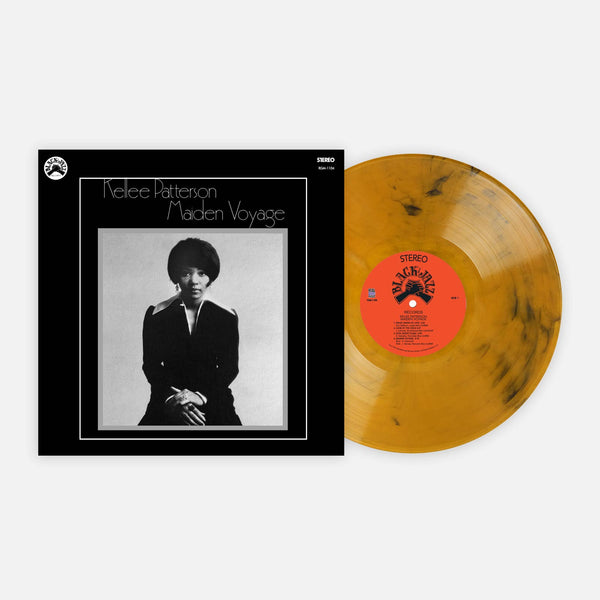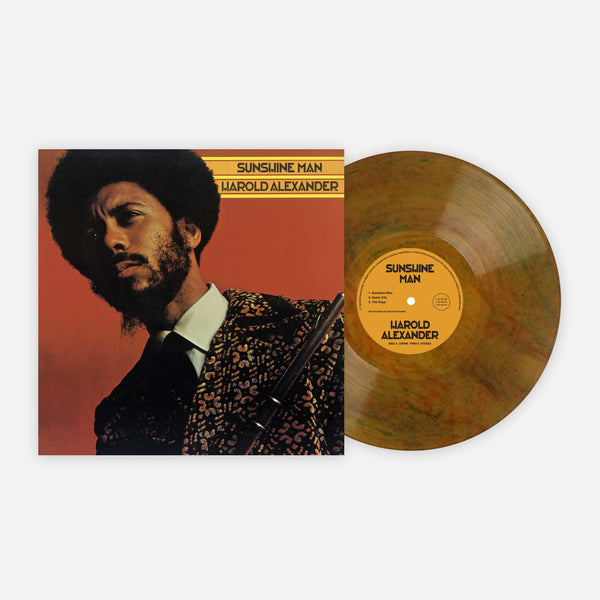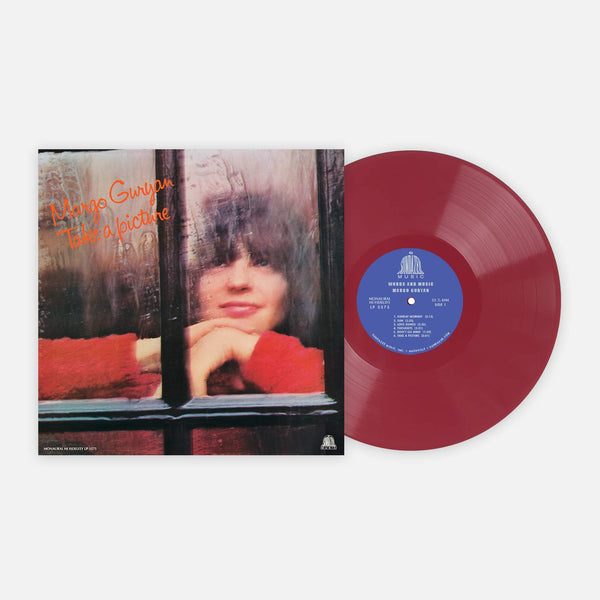ในเดือนมิถุนายน สมาชิกของ Vinyl Me, Please Rap & Hip Hop จะได้รับการกดแบบพิเศษของคลาสสิกปี 2004 ของ DOOM,MM..Food ซึ่งจะมีédition นี้เป็นวินิลดีลักซ์สีเขียวและขาว มีเยื้องหนักและมาพร้อมกับเทมเพลต DOOM แบบกำหนดเอง ซึ่งเป็นสินค้าที่ต้องมีสำหรับแฟนแร็ป คุณสามารถเข้าร่วมในรายชื่อรอได้ ที่นี่.
ด้านล่างนี้เรามีคำแนะนำสำหรับผู้ที่ต้องการเรียนรู้เกี่ยวกับ DOOM ให้ลึกซึ้งยิ่งขึ้นหลังจากรู้เกี่ยวกับรุ่นของเรา MM..FOOD.
Underground anti-hero DOOM is largely based on comic book lore, but his real-life backstory sadly parallels the tragedy that births supervillains. Born Daniel Dumile, DOOM was first introduced to the culture as Zev Love X, one-third of the Brand Nubian-mirroring Long Island group K.M.D. Before finishing their second album, Zev’s brother Subroc was struck by a car and killed while attempting to cross the Long Island Expressway. Zev worked through grieving and finished the album by himself, only for his label to shelve the project in 1993 because of its controversial album art. Zev Love X died and Dumile would re-emerge with the mask and the gravelly voice in the late ’90s after a period of silence while hovering around homelessness.
The rhymes were abstract and the sample sources were absurd, but DOOM’s prolific output in the earlier part of last decade eventually made him one of the most influential artists to rise from underground. His esoteric reference points and his enigmatic presence became the very things that compelled legions of backpackers and fellow absurdists. Perhaps his appeal was best described by Yasiin Bey (f.k.a. Mos Def): “He rhymes as weird as I feel.” DOOM dropped his first LP since 2012 last month--Czarface Meets Metal Face--so now is a good time to revisit the DOOM/King Geedorah/Viktor Vaughn/Madvillain rabbit hole. Here are entry points for those willing to do some digging:
Mr. Hood
Before his voice went husky, MF DOOM was Zev Love X, a fresh-faced member of the Long Island trio KMD. The group had many of Native Tongues’ sensibilities—including peace-loving social consciousness and a love of samples—but the marriage of high-concepts and cartoonish humor that became MF DOOM’s hallmark is here: Mr. Hood’s titular character is a racially insensitive dolt whose dialogue is composed of a language-translation record. Of course, that playfulness and commentary isn’t just relegated to the skits. Zev could pull off singles like “Peachfuzz”—an ode to being young and just getting facial hair—and break down racism’s contradictions on “Bananapeel Blues” with equal efficacy.
Black Bastards
Black Bastards is one of those albums that’s been looked at more as a plot point than a project with its own merits. Its release was scrapped after Billboard’s Terri Ross made a stink about its album cover, which featured a sambo figure being lynched. This came after Zev Love X was forced to finish the album by himself following former KMD member Onyx’s departure and his brother Subroc’s death. Black Bastards didn’t see a release until almost a decade later.
The tragic effort captured an act moving away from light-hearted numbers like “Peachfuzz” and becoming more rugged, like a basement version of the shift from 3 Feet High and Rising to De La Soul Is Dead. The mixing is on the sloppier side—the jazz sampling “Contact Blitt” sounds like Zev Love X crashed the Blue Note—but it does little to disrupt Black Bastard’s sense of urgency. “What a Nigga Know?” is an apocalyptic two-man cipher, while Zev’s “They say 'What up black?’ I say ‘What up?’ I'm thinkin' you black / Has to be hard they way they master how to act black” on the title track is a snipe at blackness-wearing whites that’s a bit too prescient for comfort.
Operation: Doomsday
DOOM’s debut isn’t his most concise, but that’s forgivable when considering its backstory. Doomsday came from a man who spent years in reclusion; he can be forgiven if some of the rhymes spill over. Actually, you can argue that marginlessness is part of Doomsday’s charm—the muddily mixed comeback uncorks itself with the messy excitement of cheap champagne. The rhymes are plenty, yet we rarely lose the emotional beats when it counts. Late highlight “Dead Bent” captures DOOM with his ever-impish grin during a triumphant moment. He dedicates a part of the hook to “Doomsday” to his brother—“ever since the womb till I'm back where my brother went”—in the middle of his technical exhibition. DOOM’s best would come later, but Doomsday is essential to understanding his story.
Take Me to Your Leader
Part of DOOM’s shtick is how he effortlessly mixes traditional, East Coast-bred realism with surrealist twitches. Take Me to Your Leader—his lone LP as King Geedorah, a moniker named after the Godzilla foe—is him fully delving into the latter, flipping cartoon, soul, and other obscure samples in ways that are at turns haunting and atmospheric. Our leadman notably sticks mainly to production duties and cedes the table to a coterie of rhymers crazy enough to tackle this nutty soundscape (peep Rodan sprinting across that cackling Godzilla bite on “No Snakes Allowed”). But Take Me to Your Leader is unmistakably MF DOOM/King Geedorah’s vision. He closes it off with an excellent twofer: “One Smart Nigger” is incisive racial commentary using only samples, and “The Fine Print” marks DOOM as probably the only rapper to close an album throwing rhymes over a composition from Gatchaman.
Vaudeville Villain
DOOM explained during a Red Bull lecture that the difference between his central character and Viktor Vaughn is how the former is top-of-the-heap in his villainy while the latter is the younger rebel envious of DOOM’s throne.You fully understand the difference on Viktor Vaughn’s debut Vaudeville Villain. While DOOM lets the haymakers pop from behind a cloud of smoke, Vaughn is upfront with his fury straight from the album’s bombastic first full song “Saliva.” He rarely lets up over a collection of some of the cleanest, muscular beats of DOOM/Vaughn/The Rapper Born Daniel Dumile’s entire catalog. Highlights include the hypnotic clacks the break open the luscious “Let Me Watch”—which finds Vaughn rudely going after a virgin, played by a street-sharp Apani B—and the phantasmagoric closing tracks “G.M.C.” and “Change the Beat.” You find yourself rooting for the “member of the most player-hated race.”
Madvillainy
It’s fun to go against the consensus, but any listener who hasn’t considered Madvillainy one of the century’s best albums is kidding themselves. DOOM has had more than a handful of worthy collaborators since Operation: Doomsday, but fellow recluse Madlib was the first to thoroughly match his dusted eccentricities. Madlib economically used an cache that ranged from a wild accordion sample to Brazilian post-bossa nova to converse with a flow-flipping madman who’ll throw in the word “Egad” in a rhyme, while displaying enough cool to inspire you to Google “Jack LaLanne.” If Sun Ra rapped and survived a fever dream, these would be the resulting 46 minutes.
The Mouse and the Mask
Adult Swim’s comedy features a lot of sophomoric humor, a solid fit for an emcee who’d rhyme over a Scooby-Doo sample on his solo debut. The Mouse and the Mask—an album that features the “Sofa King” joke as a song title—is soundtracked by Adult Swim samples and Danger Mouse’s production. This is both one of the lighter listens in DOOM’s catalog and the most star-packed with Talib Kweli and CeeLo Green popping up. Ghostface Killah joins the villain for “The Mask,” where he reminisces on also wearing a mask in his early days (“The day I took my mask off, my face was missing for two days”). The collaboration was potent enough to build hype for a collaborative project from the two. Though they would work together some more in later years, that project would never see a release.
Born Like This
DOOM’s most recent solo album is his first without a central driving concept, but not that that's a bad thing; while Operation: Doomsday was the introduction of the supervillain and MM.. Food is based on… well, food, Born Like This saw underground rap royalty doing some throne housekeeping. This album is as much of a thrill as anything in his catalog, showing an emcee whose wit is still sharp heading into his 40s. DOOM might be far from being the first rapper to repurpose J Dilla beats following his death in 2006, but you tend to let to forget that when he drops brilliant couplets like “Once sold an inbred skinhead a nigga joke / Plus a brand new chrome smoker with the triggers broke” in “Gazillion Ear.”
Buy the Vinyl Me, Please special edition of this album here.
Key to the Kuffs
After catching criticism for sending out doppelgangers for his 2008 North American tour, MF DOOM took the stage himself during his 2010 European trek. In a tragic turn of events, MF DOOM was forced to make a home out of England when visa issues left him unable to return home. He linked up with fellow experimentalist Jneiro Jarel during his exile to form another portmanteau, JJ DOOM. The resulting project Key to the Kuffs isn’t quite the act of kismet that Madvillainy was, but MF DOOM does more than enough to acquit himself on Jarel’s septic collection of beats. He’s shouting out the Icelandic volcano Eyjafjallajökull on “Guv’nor” and barrelling through the warped bloops on the Damon Albarn-assisted “Bite the Thong.” Cockney-rhymin’ DOOM is still DOOM.
Buy the Vinyl Me, Please special edition of this album here.
Brian Josephs เป็นนักเขียนด้านวัฒนธรรมที่อาศัยอยู่ในบรู๊คลิน เขาเคยถูกเห็นใน SPIN, Complex, Pitchfork และอื่น ๆ เขายอมรับการชำระเงินด้วยเงินดอลลาร์สหรัฐและเมล็ดข้าว.
Related Articles
เข้าร่วมชมรม!
เข้าร่วมตอนนี้ เริ่มต้นที่ 44 ดอลลาร์ส่วนลดพิเศษ 15% สำหรับ คุณครู,นักเรียน,ทหาร,ผู้เชี่ยวชาญด้านการดูแลสุขภาพ และ ผู้ตอบโต้เหตุฉุกเฉิน - ยืนยันตัวตนเลย!







